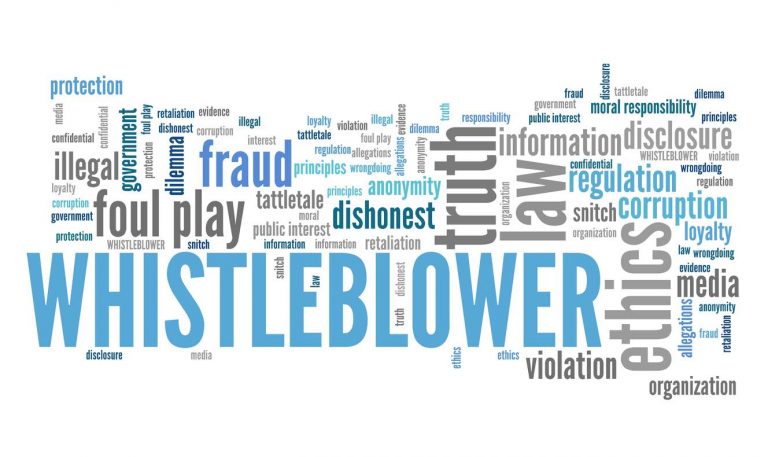Sarbanes Oxley Protected Conduct Does Not Require a Showing of Materiality
The great weight of authority holds that there is no independent materiality element to establish protected whistleblowing under Section 806 of SOX.
Most recently, Judge Brantley Starr soundly rejected an employer’s argument that SOX protects only disclosures about material violations: “Materiality isn’t in the Sarbanes-Oxley whistleblower law. It isn’t in the four of the six specifically defined trigger laws.” Seybold v. Charter Communications Inc., 2022 WL 675804 (N.D.Tx. Mar. 7, 2022) (citing 18 U.S.C. §§ 1341, 1343, 1344, 1348).
In Donaldson v. Severn Sav. Bank, F.S.B.,[i] Vanessa L. Donaldson brought a SOX whistleblower action against her former employer, Severn Savings Bank (“Severn”), claiming she was unlawfully terminated after she reported to her supervisor her suspicions about an inaccurate bank report. Specifically, Ms. Donaldson alleged that she informed her supervisor about a scheme in which the commercial/retail manager for Ms. Donaldson’s branch falsified the retail production report for the third quarter of 2013, in order to collect unearned bonus pay.
Severn argued that Ms. Donaldson failed to allege she engaged in protected activity because she failed “to allege any facts whatsoever that would indicate any material misrepresentations (or omissions) were reported to Severn’s shareholders,” and so she lacked an objectively reasonable belief that she was disclosing shareholder fraud. The court rejected Severn’s narrow construction of SOX:
[T]he federal criminal fraud statutes . . . prohibit the scheme to defraud, not a completed fraud. . . .Materiality of falsehood . . . was a common-law element of actionable fraud at the time these fraud statutes were enacted and is an incorporated element of the mail fraud, wire fraud, and bank fraud statutes. . . . But § 1514A carries no independent materiality element. Consequently, Donaldson’s objective belief need not be about a material matter, as Severn has argued. Rather, her objective belief must be based on facts permitting an inference that [the manager’s] allegedly false representation was material to Severn’s course of conduct.[ii]
The court found that Ms. Donaldson met this standard because the manager’s alleged inflation of the retail production figures was intended to, and likely would, affect the size of a bonus awarded him by Severn. Therefore, the court concluded, “it may be inferred from Donaldson’s complaint that she had an objectively reasonable belief that [the manager was] engaged in a scheme to defraud Severn.”[iii]
Similarly, the Third Circuit held in Wiest v. Lynch, 710 F.3d 121 (3d. Cir. 2013) that a SOX whistleblower need not prove materiality: “[R]equiring a complainant to prove or approximate the specific elements of a securities law violation contradicts the statute’s requirement that an employee have a reasonable belief of a violation of the enumerated statutes.” Sylvester, 2011 WL 2165854, at *18. The ARB further explained, “a complainant can engage in protected activity under Section 806 even if he or she fails to allege or prove materiality, scienter, reliance, economic loss, or loss causation.” Id. We find this interpretation to be reasonable because there is nothing in the statutory text that suggests that a complainant’s communications must assert the elements of fraud in order to express a reasonable belief that his or her employer is violating a provision listed in Section 806. Therefore, the District Court erred by requiring that an employee’s communication reveal the elements of securities fraud, including intentional misrepresentation and materiality.”
Per SEC Staff Accounting Bulletin No. 99 (SAB 99) and well-established precedent, exclusive reliance on quantitative benchmarks to assess materiality in preparing financial statements and performing audits of those financial statements is inappropriate; misstatements are not immaterial simply because they fall beneath a numerical threshold. In Gebhardt v. ConAgra Foods, Inc., 335 F.3d 824 (8th Cir. 2003), the Eighth Circuit relied on the following principles to assess materiality:
- A fact is deemed material if there is a substantial likelihood that the disclosure of the omitted fact would have been viewed by the reasonable investor as substantially altering the mix of information available to the investor.
- Information can be material because a reasonable investor would be interested in knowing that the senior managers of a company were oblivious to their underlings’ malfeasance. Management’s integrity is important to investors.
- In order to take the decision about materiality away from the jury, the circumstances must make it obvious why a reasonable investor would not be concerned about the facts misrepresented
- The importance of the misrepresented facts should not be judged with the advantage of hindsight. The test is whether there is “a substantial likelihood that the disclosure of the omitted fact would have been viewed by the reasonable investor as having significantly altered the total mix of information made available.” Rodney v. KPMG Peat Marwick, 143 F.3d 1140, 1144 (8th Cir. 1998) (quotations omitted) (emphasis added). This requires the factfinder to look at the information from the perspective of a reasonable investor at the time of the misrepresentation, not from the perspective of a reasonable investor looking back on how events unfolded.
Pursuant to SAB 99, “among the considerations that may well render material a quantitatively small misstatement of a financial statement item are –
- whether the misstatement arises from an item capable of precise measurement or whether it arises from an estimate and, if so, the degree of imprecision inherent in the estimate14
- whether the misstatement masks a change in earnings or other trends
- whether the misstatement hides a failure to meet analysts’ consensus expectations for the enterprise
- whether the misstatement changes a loss into income or vice versa
- whether the misstatement concerns a segment or other portion of the registrant’s business that has been identified as playing a significant role in the registrant’s operations or profitability
- whether the misstatement affects the registrant’s compliance with regulatory requirements
- whether the misstatement affects the registrant’s compliance with loan covenants or other contractual requirements
- whether the misstatement has the effect of increasing management’s compensation – for example, by satisfying requirements for the award of bonuses or other forms of incentive compensation
- whether the misstatement involves concealment of an unlawful transaction.”
[i] No. JKB-15-901, 2015 WL 7294362, at *3 (D. Md. Nov. 18, 2015).
[ii] Id. at *3 (citations omitted).
[iii] Id.
SOX Whistleblower Retaliation Law
We represent corporate whistleblowers nationwide in high-stakes whistleblower retaliation cases and have obtained substantial recoveries for CEOs, CFOs, auditors, accountants, risk managers, CISOs, and other executives and senior professionals. We have recovered more than $15 million for corporate whistleblowers and have obtained settlements in excess of one million dollars in at least five SOX matters. Click here to read reviews from senior executives and professionals that we represented in whistleblower retaliation matters.
To learn more about the Sarbanes-Oxley corporate whistleblower protection law, download our free guide Sarbanes-Oxley Whistleblower Protection: Robust Protection for Corporate Whistleblowers.
SEC Whistleblower Attorneys: Representing Whistleblowers Nationwide
We are also one of the leading law firms representing whistleblowers worldwide before the SEC, and indeed our attorneys represented whistleblowers at the SEC before the enactment of the Dodd-Frank Act. We helped shape the SEC rules implementing the SEC Whistleblower Program, and have represented whistleblowers in disclosing a wide range of violations of federal securities laws, including:
- Accounting fraud;
- Investment and securities fraud;
- Foreign bribery and other FCPA violations;
- EB-5 investment fraud;
- Manipulation of a security’s price or volume;
- Fraudulent securities offerings and Ponzi schemes;
- Hedge fund fraud;
- Unregistered securities offerings;
- Investment adviser fraud;
- Anti-money laundering program violations;
- False or misleading statements about a company or investment;
- Inadequate internal controls;
- Deceptive non-GAAP financial measures; and
- Violations of auditor independence rules.
See our recent article in Forbes: One Billion Reasons Why The SEC Whistleblower-Reward Program Is Effective. If you have information you would like to report to the SEC, contact an experienced SEC whistleblower attorney at Zuckerman Law for a free, confidential consultation by calling 202-262-8959.
To learn more about the SEC Whistleblower Program, download our free guide SEC Whistleblower Program: Tips from SEC Whistleblower Attorneys to Maximize an SEC Whistleblower Award.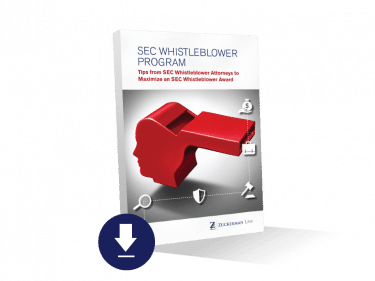
Assessing Materiality
In a speech titled Living in a Material World: Myths and Misconceptions about “Materiality”, Commissioner Lee noted:
So, what are the possible sources of a duty to disclose? A duty may arise by virtue of an explicit SEC disclosure requirement, such as those set forth in Regulation S-K.[9] A duty may also arise, as it did in Basic, in order to make other statements made by a company materially accurate or not misleading . . . another means by which a duty may arise is through statements a company makes on a topic which may then require the disclosure of additional information “necessary in order to make the statements made, in the light of the circumstances under which they are made, not misleading.”[14]In other words, if a company makes statements on a topic, a duty may arise to disclose additional information needed to ensure that those statements are materially accurate and complete.[15]
In a speech titled Assessing Materiality: Focusing on the Reasonable Investor When Evaluating Errors, Acting Chief Accountant Paul Munter noted some key points about materiality:
-
Management is responsible for providing investors with GAAP-compliant financial statements, so whenever a material error is identified in previously-issued financial statements,[2] investors must be notified promptly and the error must be corrected. The determination of whether an error is material is an objective assessment focused on whether there is a substantial likelihood it is important to the reasonable investor.[3]
-
A materiality analysis is not a mechanical exercise, nor should it be based solely on a quantitative analysis. Rather, registrants, auditors, and audit committees need to thoroughly and objectively evaluate the total mix of information. Such an evaluation should take into consideration all relevant facts and circumstances surrounding the error, including both quantitative and qualitative factors, to determine whether an error is material to investors.
-
Therefore, while the existence of a material accounting error is an indicator of the existence of a material weakness, a material weakness may also exist without the existence of a material error. Management’s assessment of the effectiveness of ICFR should therefore be focused on a holistic, objective analysis of what could happen in the context of current and evolving financial reporting risks.
-
In our disclosure-based regime, investors have a right to financial statements prepared in accordance with GAAP. When an error is identified, it is important for registrants, auditors, and audit committees to carefully assess whether the error is material by applying a well-reasoned, holistic, objective approach from a reasonable investor’s perspective based on the total mix of information. To be objective, those involved in the process must eliminate from the analysis their own biases, including those related to potential negative impacts of a restatement, that would be inconsistent with a reasonable investor’s view. Additionally, the objective analysis should consider all relevant facts and circumstances including both quantitative and qualitative factors.
Qualifying for an SEC Whistleblower Award: Tips for SEC Whistleblowers
5 Tips for SEC Whistleblowers and Lessons Learned from SEC Whistleblower Awards
SEC Whistleblower Program and SEC Whistleblower Awards
Why Hire Leading SOX Whistleblower Law Firm Zuckerman Law
We have assembled a team of leading whistleblower lawyers to provide top-notch representation to Sarbanes-Oxley (SOX) whistleblowers. Recently Washingtonian magazine named two of our attorneys top whistleblower lawyers. U.S. News and Best Lawyers® have named Zuckerman Law a Tier 1 Law Firm in the Washington D.C. metropolitan area.
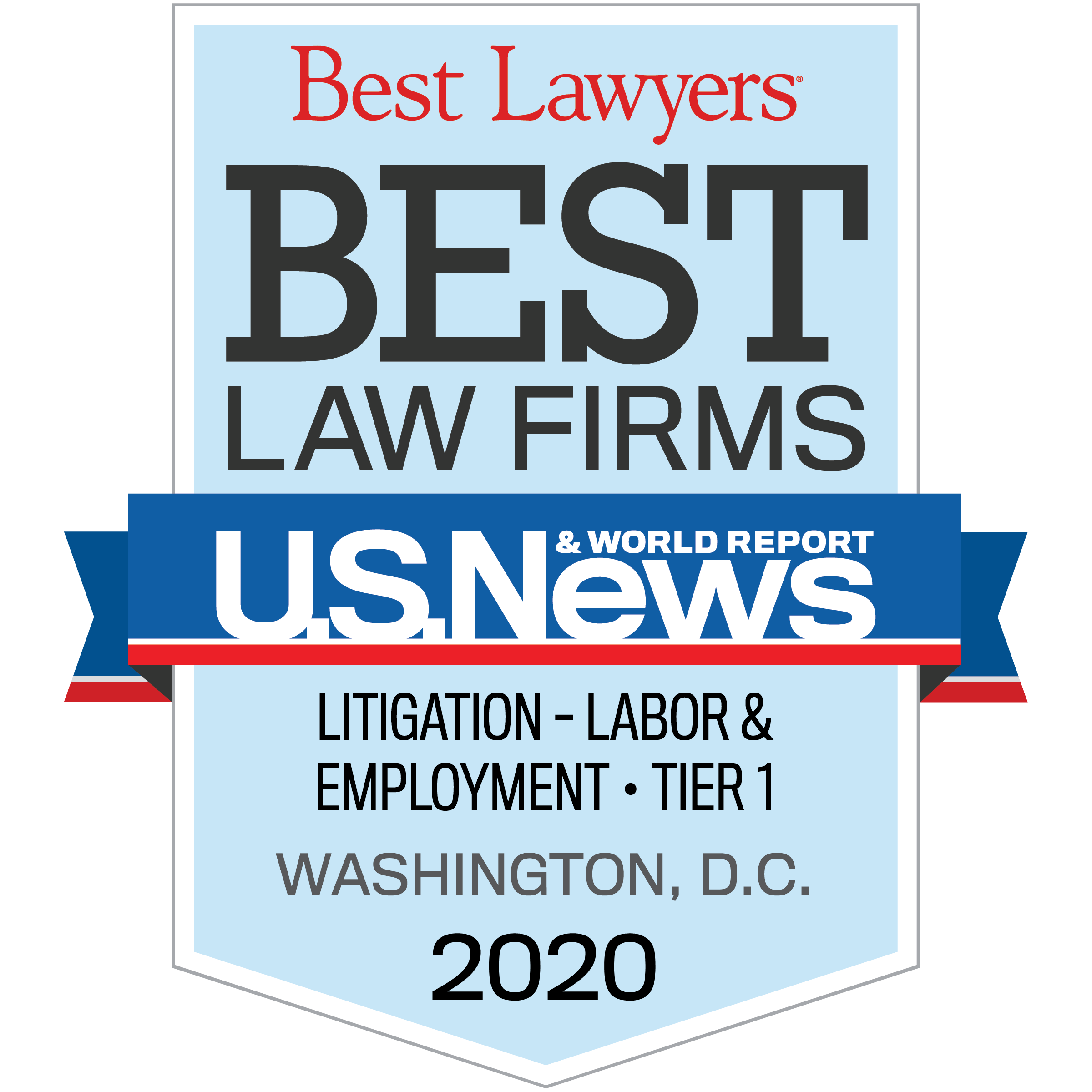
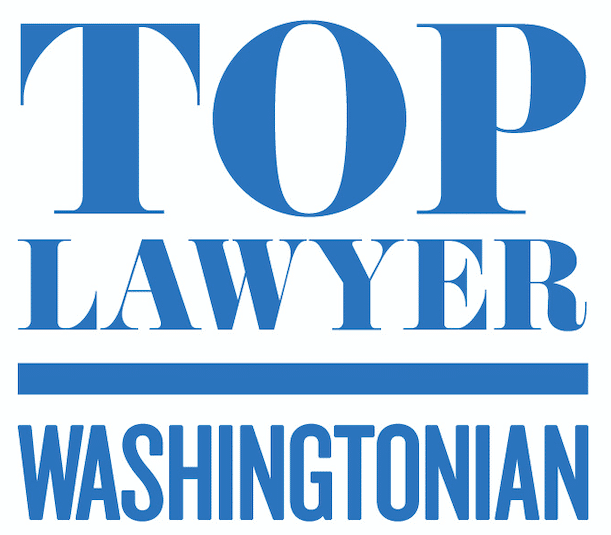
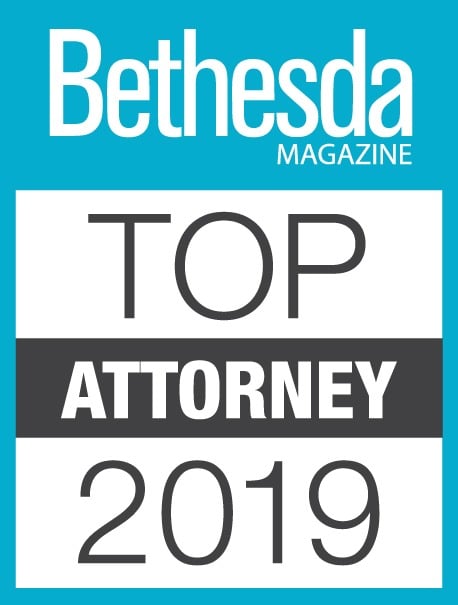
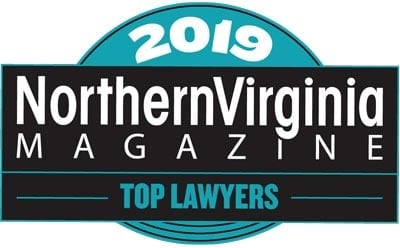
The whistleblower lawyers at Zuckerman Law have substantial experience litigating Sarbanes Oxley whistleblower retaliation claims and have achieved substantial recoveries for officers, executives, accountants, auditors, and other senior professionals. To schedule a free preliminary consultation, click here or call us at 202-262-8959.
- Matt Stock is a Certified Public Accountant, Certified Fraud Examiner and former KPMG external auditor. As an auditor, Mr. Stock developed an expertise in financial statement analysis, internal controls testing and fraud recognition, and he uses his auditing experience to help whistleblowers investigate and disclose complex financial frauds to the government and obtain damages for retaliation. He is lead author of SEC Whistleblower Program: Tips from SEC Whistleblower Attorneys to Maximize an SEC Whistleblower Award.
- Both Bachman and Zuckerman served in senior positions at the Office of Special Counsel, where they oversaw investigations of whistleblower retaliation claims and whistleblower disclosures, and enforced the Whistleblower Protection Act.
- Eric Bachman has substantial experience litigating precedent-setting employment cases. His wins include a $100 million settlement in a disparate impact Title VII class action and a $16 million class action settlement against a major grocery chain. Having served as Special Litigation Counsel in the Civil Rights Division of the Department of Justice and as lead or co-counsel in numerous jury trials, Bachman is ready to go the distance to obtain the relief that you deserve.
- Bachman and Zuckerman served on the Department of Labor’s Whistleblower Protection Advisory Committee, which makes recommendations to the Secretary of Labor to improve OSHA’s administration of federal whistleblower protections.
- Jason Zuckerman was recognized by Washingtonian magazine as a “Top Whistleblower Lawyer” in 2017, 2015, 2009, and 2007, selected by his peers to be included in The Best Lawyers in America® in the category of employment law (2011-2020), and selected by his peers to be listed in SuperLawyers(2012 and 2015-2020) in the category of labor and employment law. Zuckerman is rated 10 out of 10 by Avvo, based largely on client reviews, and rated AV Preeminent® by Martindale-Hubbell based on peer reviews.
- The firm has published extensively on whistleblower rights and protections, and regularly speaks nationwide at seminars and continuing legal education conferences. We blog about new developments in whistleblower law at the Whistleblower Protection Blog.
SOX Whistleblower Law Firm Zuckerman Law Client Testimonials
“Jason is the consummate professional when it comes to SOX retaliation claims. He is, without question, one of the most deeply knowledgeable, technical, and astute attorneys in this very specialized body of law. During one of the most difficult times in my professional career, Jason not only provided exceptional legal guidance, but equally as important, he provided emotional support that was vital to my family and me. Jason ran circles around the “major national law firm” team that was assigned to defend my employer. In fact, Jason made them look silly at times. Jason always advocated my best interests, not his own. Jason is not only an exceptional attorney who helped my family to achieve a favorable outcome, but he is a friend. I’ve worked with major law firms throughout my career and when it comes to SOX and employment law matters, there is not a finer, more talented attorney than Jason Zuckerman.”
“Jason is everything you could possibly ask for an an attorney: highly intelligent, thoughtful, and extraordinarily knowledgeable in his specialty of the law. In a very short period of time Jason was able to assimilate a laundry list of details and offer a compelling strategy on how to effectively proceed. Moreover, he is extremely responsive.”
“Jason did an exceptional job in quickly understanding the intricacies of my case, grasping not only his field of expertise of employment law, but also the violations of law and SEC Regulations that were central to my dispute. The overall strategy he utilized insured that opposing counsel was challenged and made clear that this case would simply not proceed based on a timetable convenient to them. Jason is thorough, accurate and seemingly working at all hours based on phone calls and correspondence. Fortunately Jason has a very down to earth personality, understands issues readily and can convey in understandable language current “legal” circumstances and probable outcomes. I would easily and thoroughly recommend Jason for issues related to a Sarbanes-Oxley or employment related dispute.”
“I selected Jason to handle my case after consulting with three other lawyers because of his extensive SOX experience and negotiation skills. My decision paid off as he easily surpassed all of my expectations. He quickly analyzed the merits of my case and aggressively engaged my former employer to reach a favorable settlement, avoiding years of potential litigation. He was responsive, professional, ethical and a great advocate on my behalf. I truly believe that I could not have found a better lawyer to represent my interests. He would be the first person I would recommend if a colleague or friend were to ever need similar services. Put simply, Jason is a top notch lawyer who works tirelessly to achieve a positive outcome for his clients. It’s easy to see why he is regarded as an expert in the field.”
“Jason Zuckerman is the most focused, thoughtful and aggressive attorneys I have ever known, let alone had the pleasure to have on my side in a highly complex legal case. He brought well-honed legal insights and a rapid pace to our legal preparations. He forcefully brought those preparations to the opposing side, which gave them little choice but to engage with us until a positive settlement was reached. In addition, we found Jason to be extremely responsive at every step, even if it required working past midnight. His character is beyond reproach and his dedication through the entire process was unwavering. If I ever need someone in my legal court again, I won’t hesitate for even a second, before I seek Jason’s support.”


